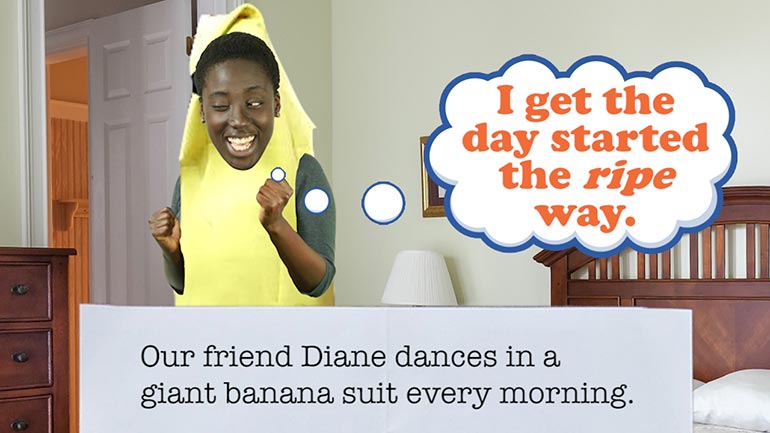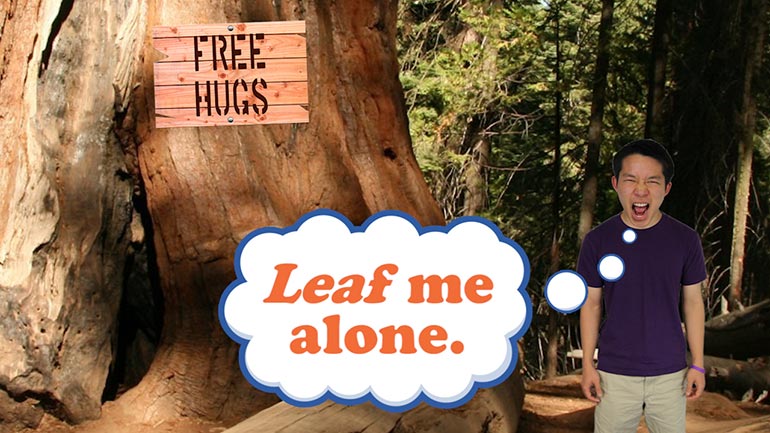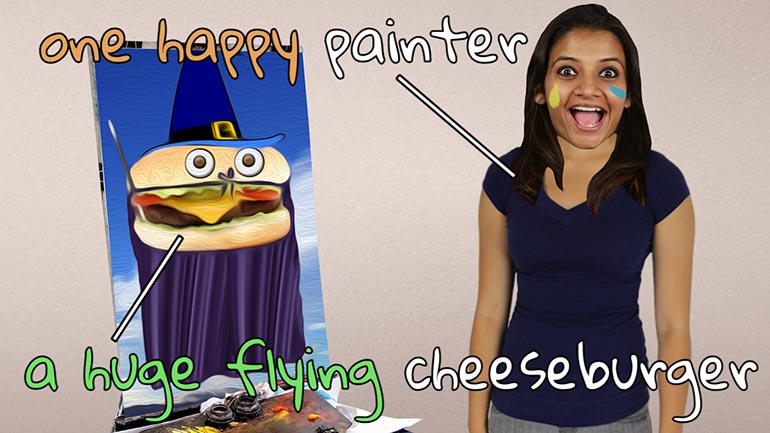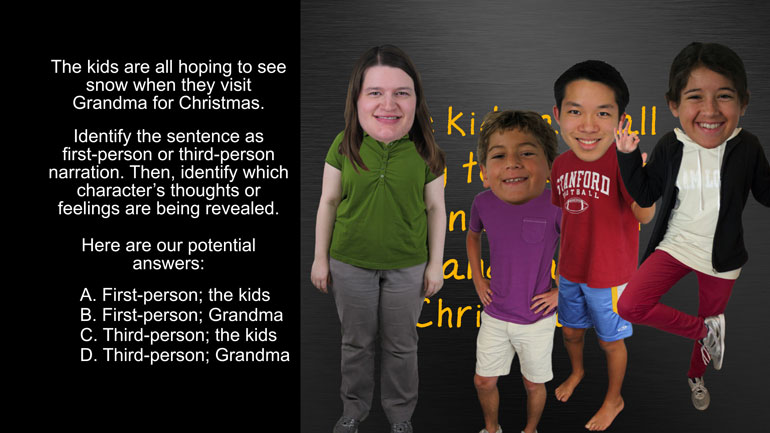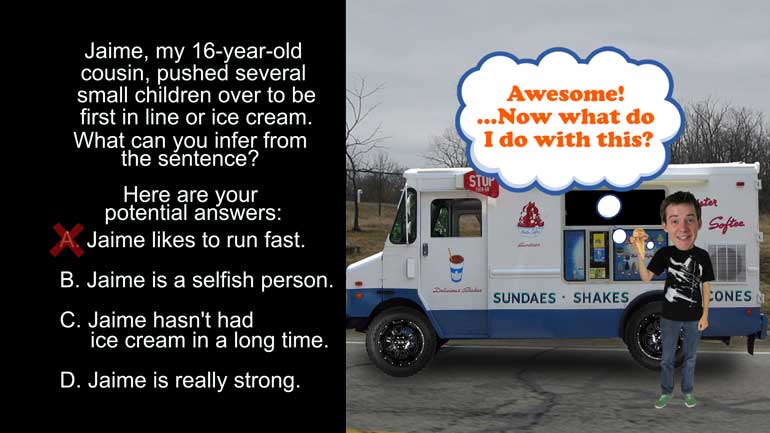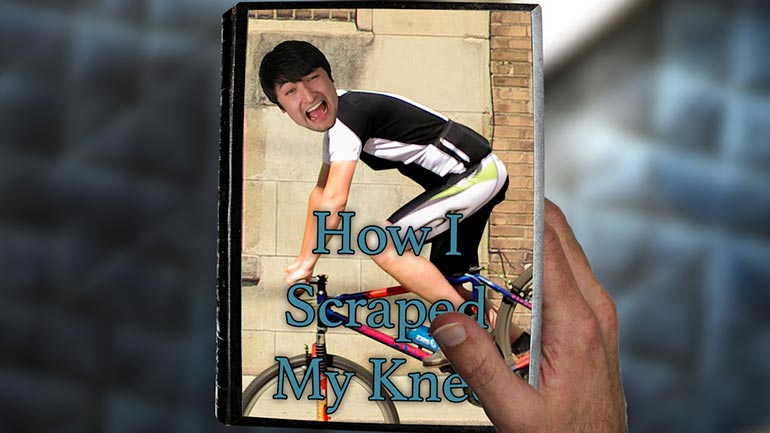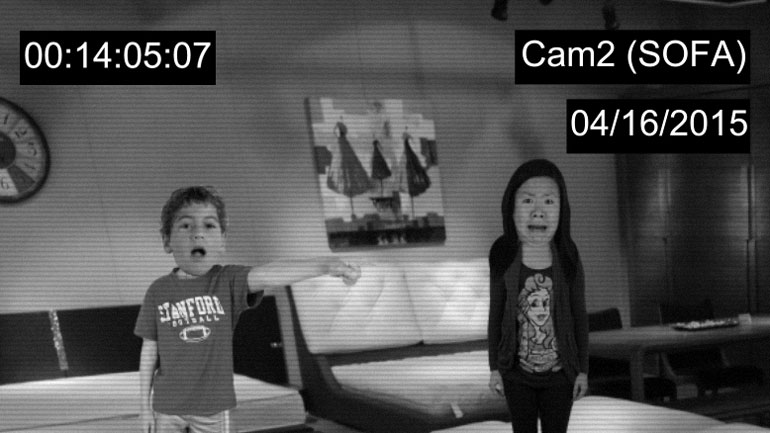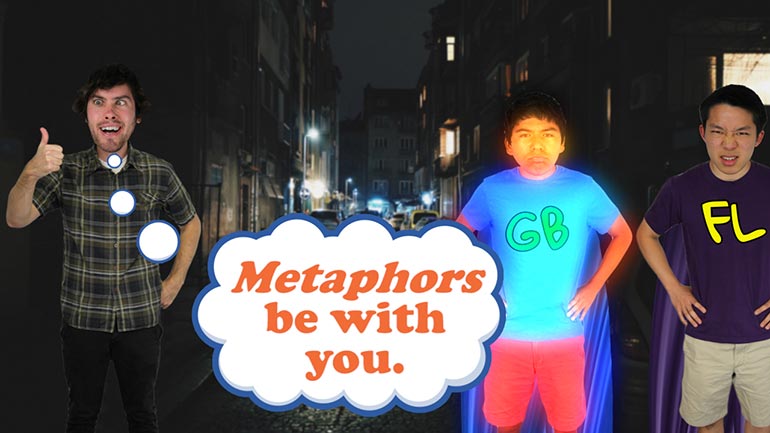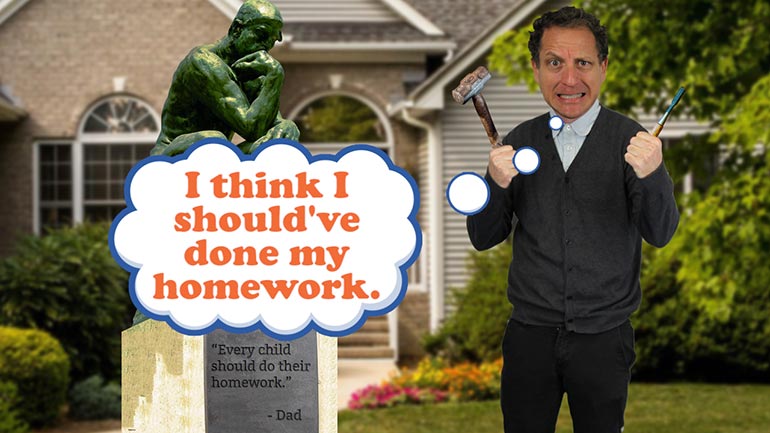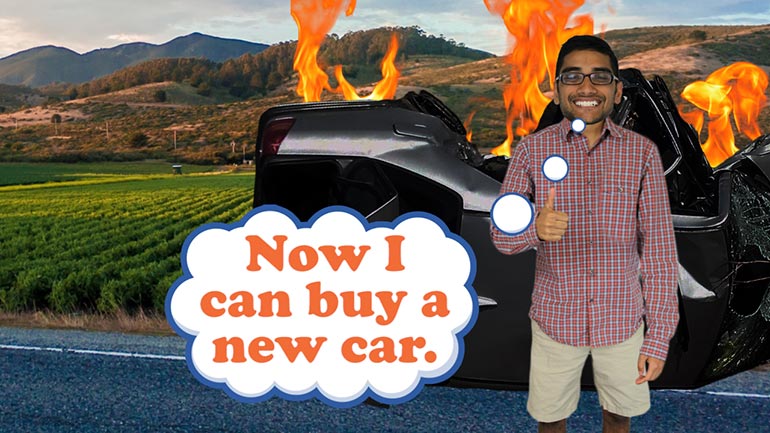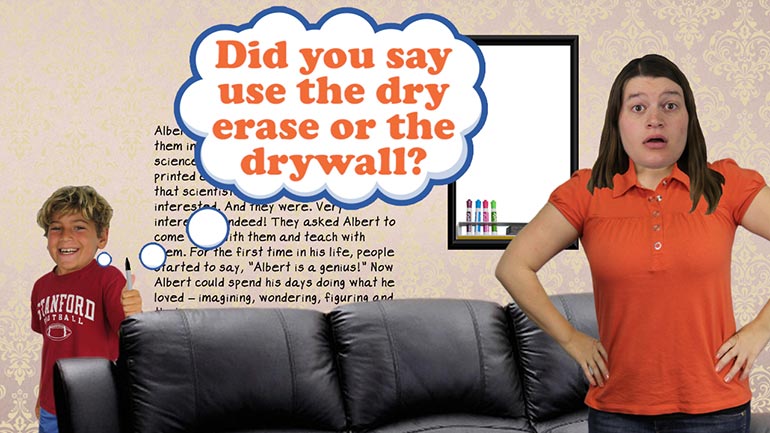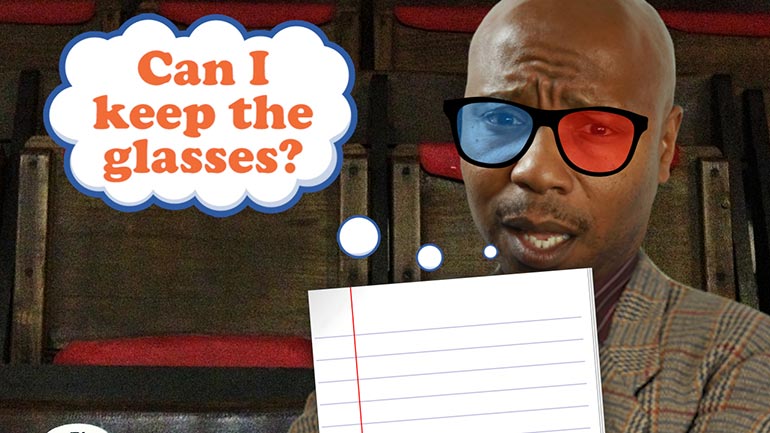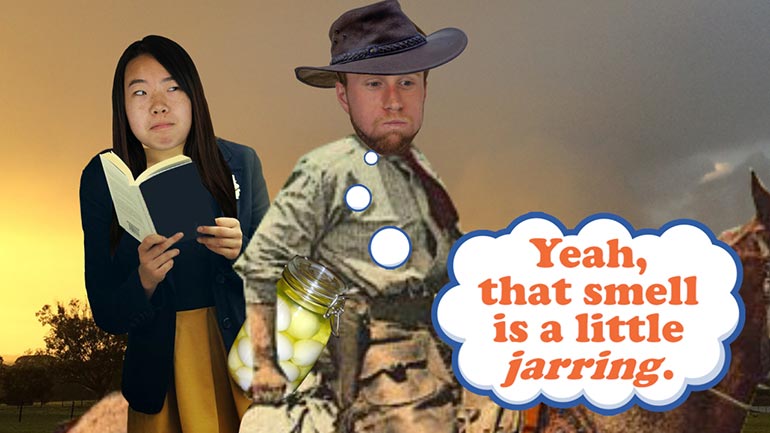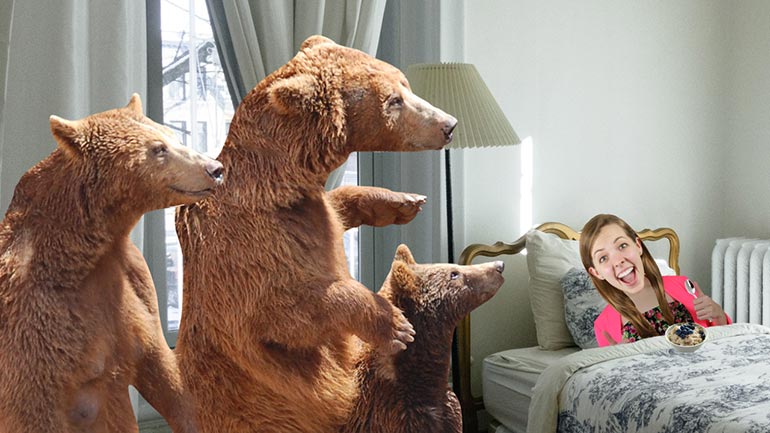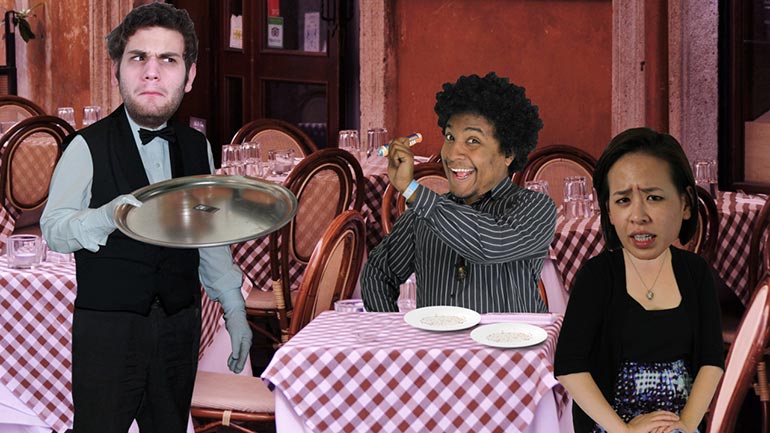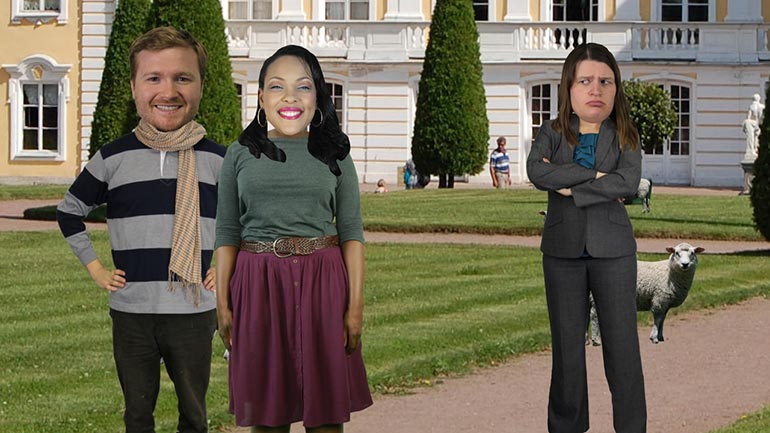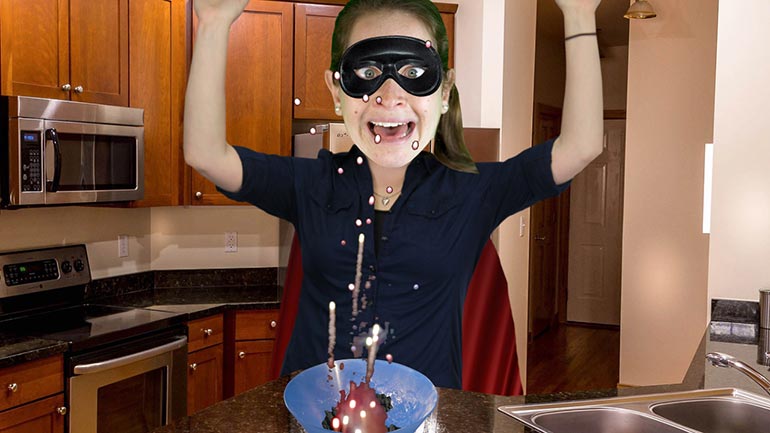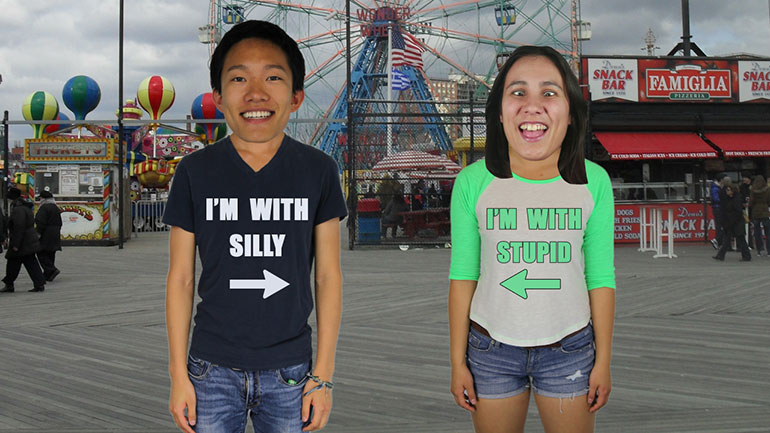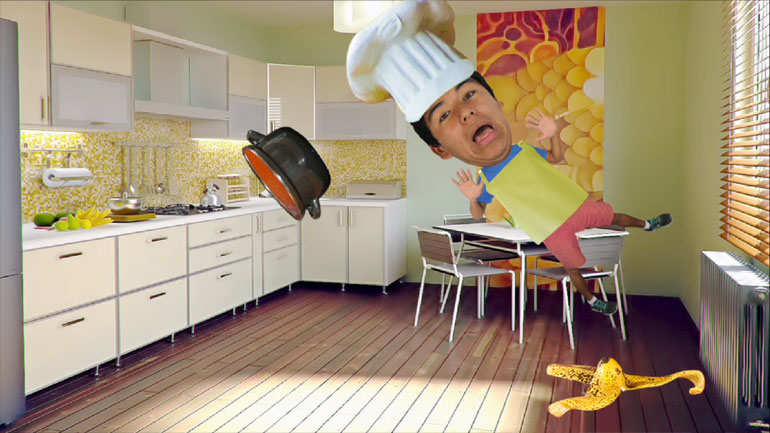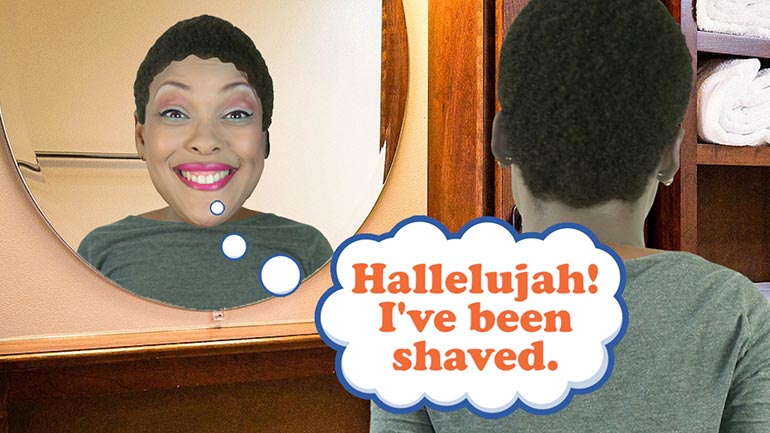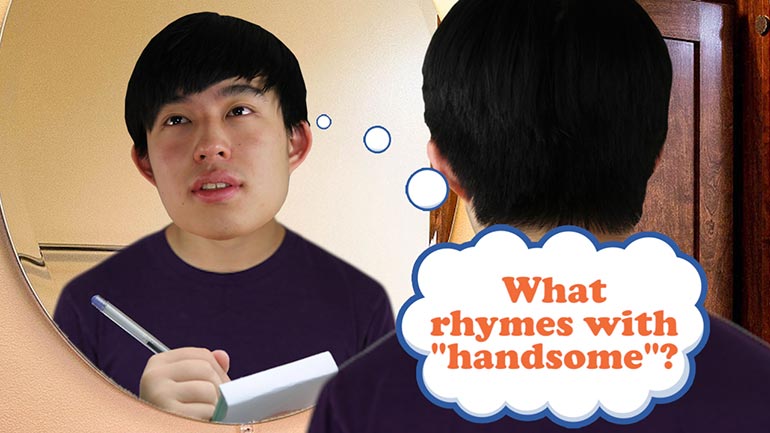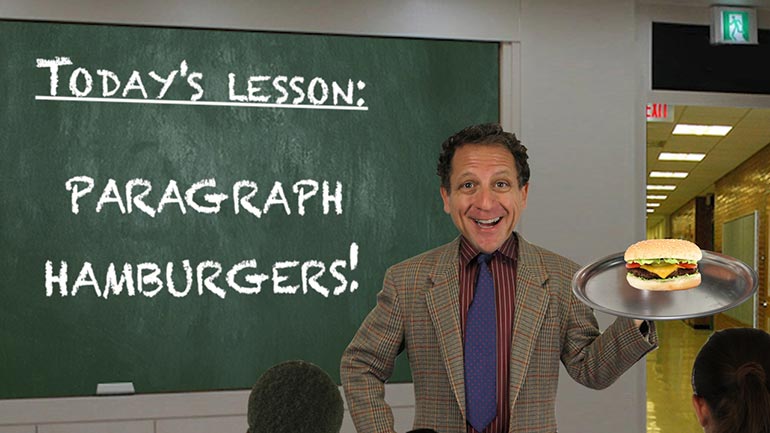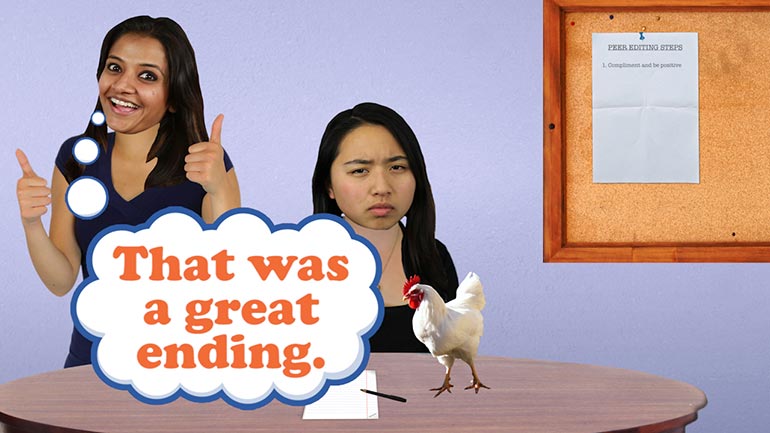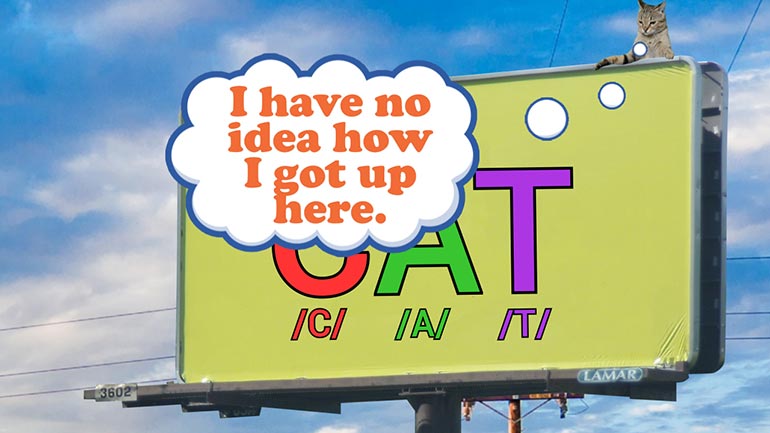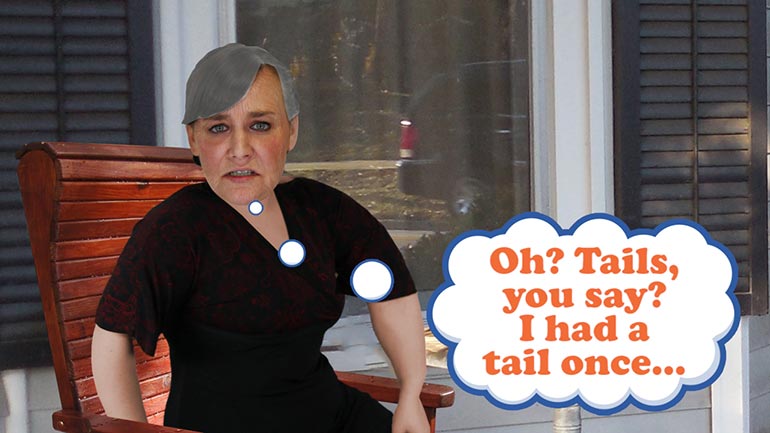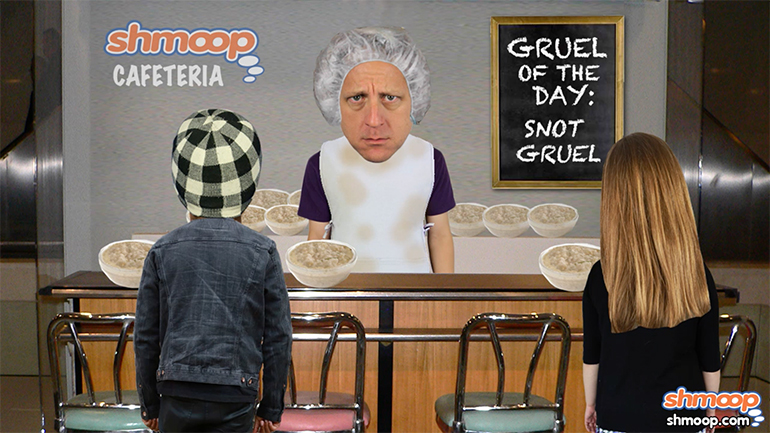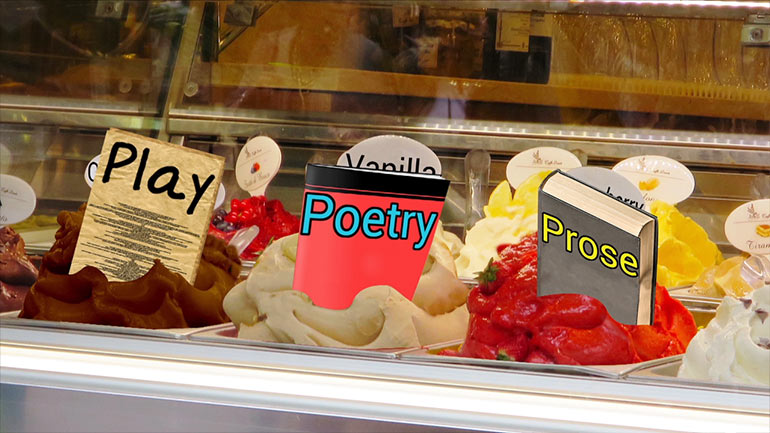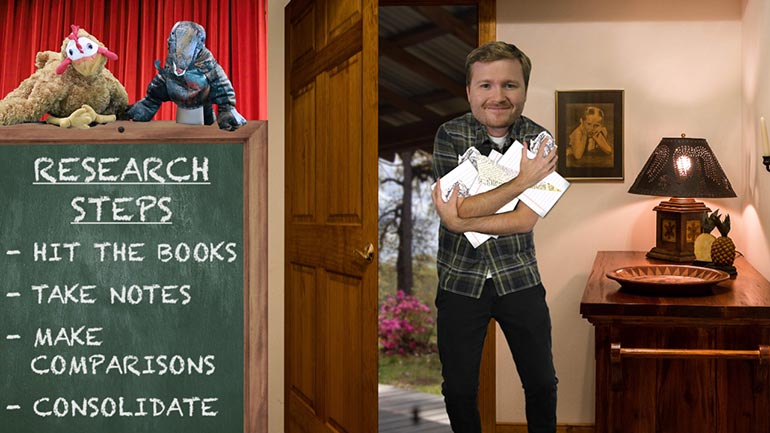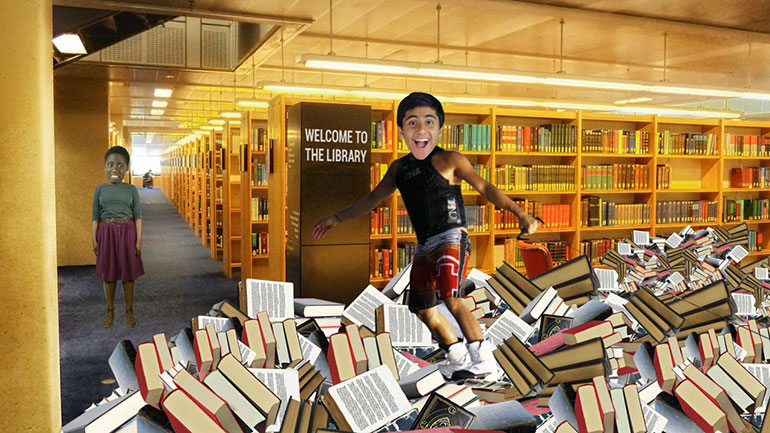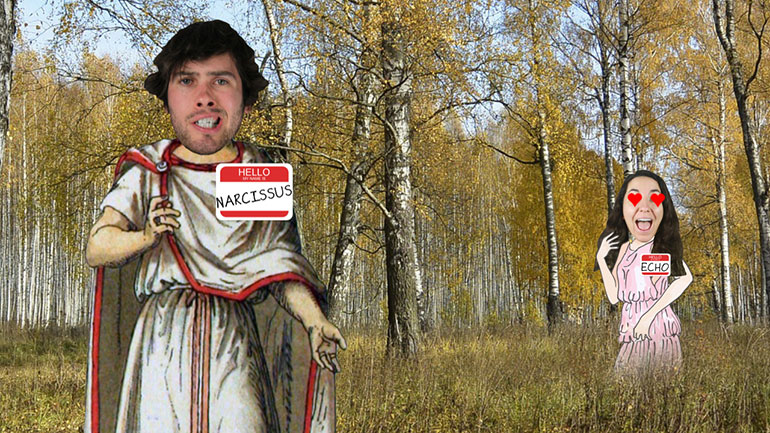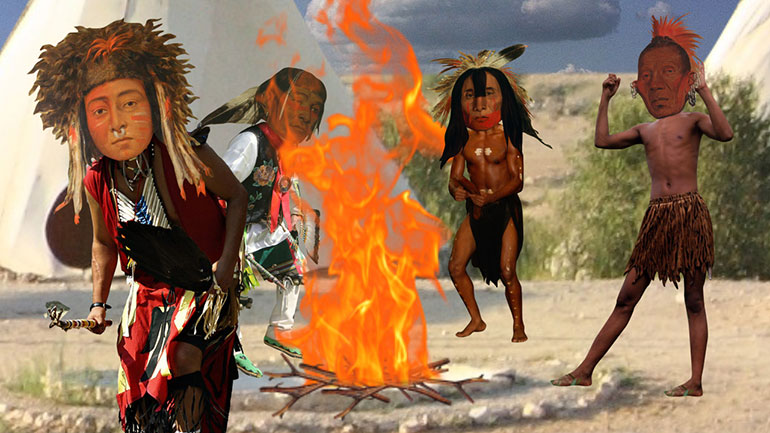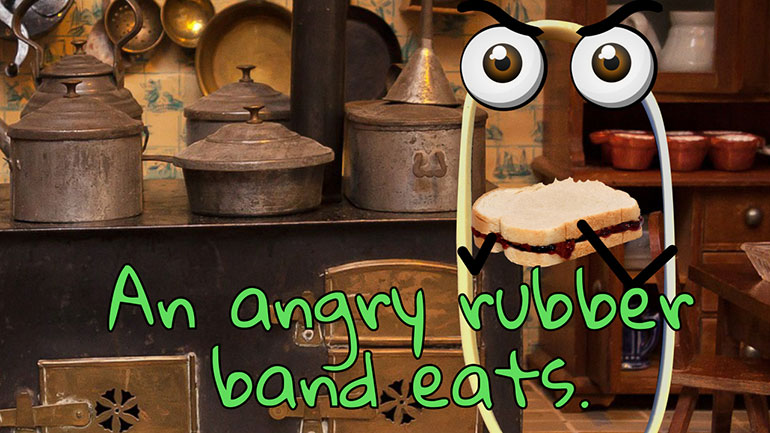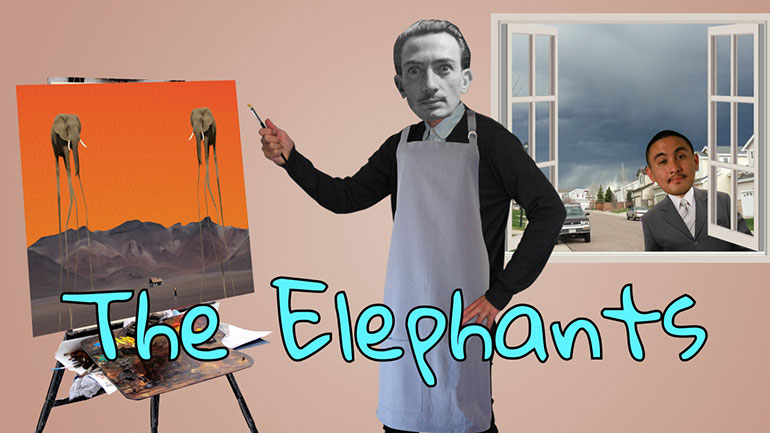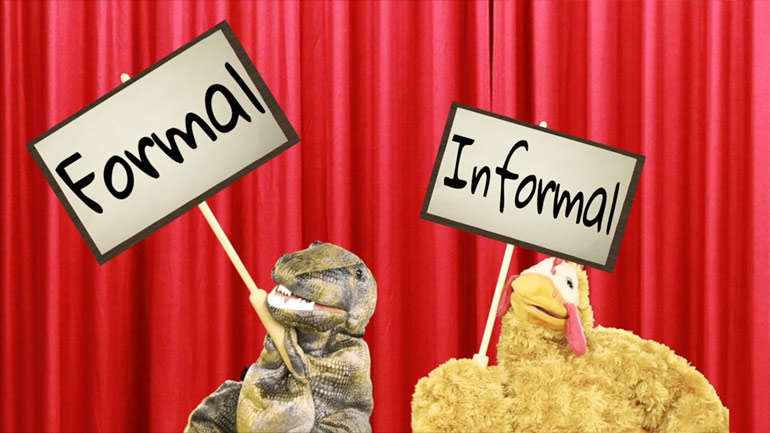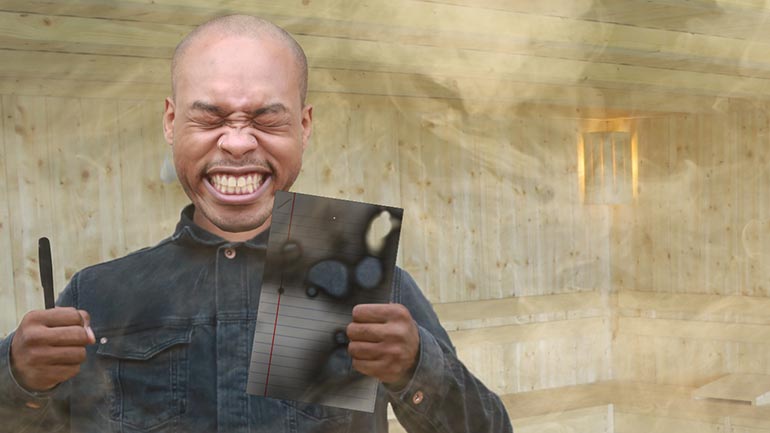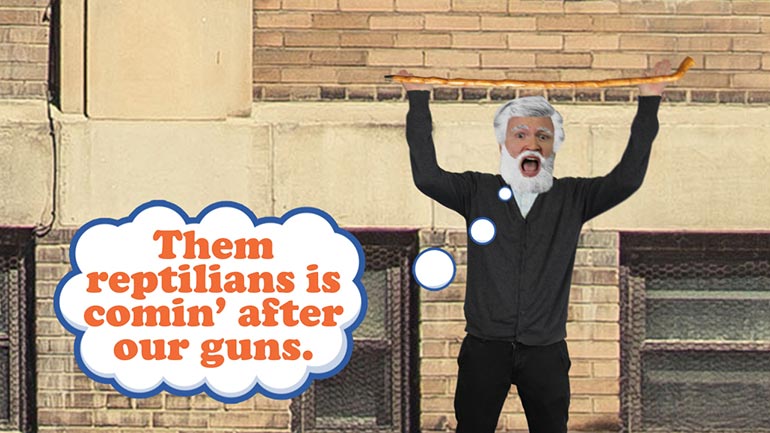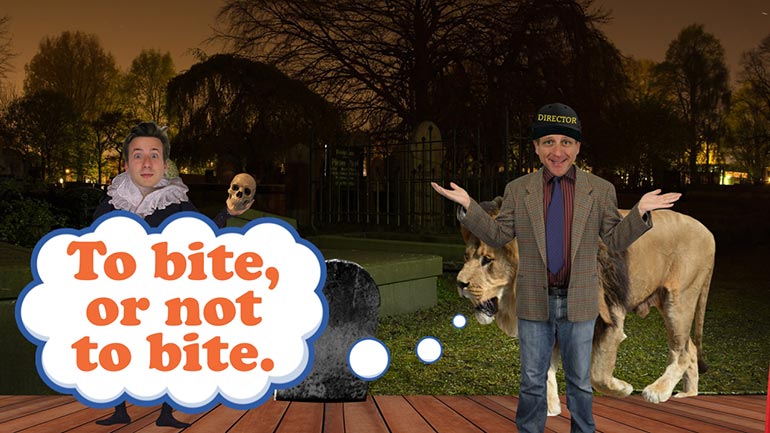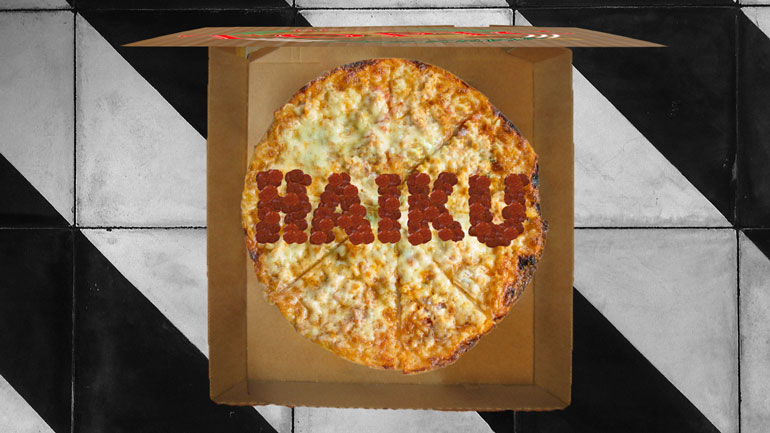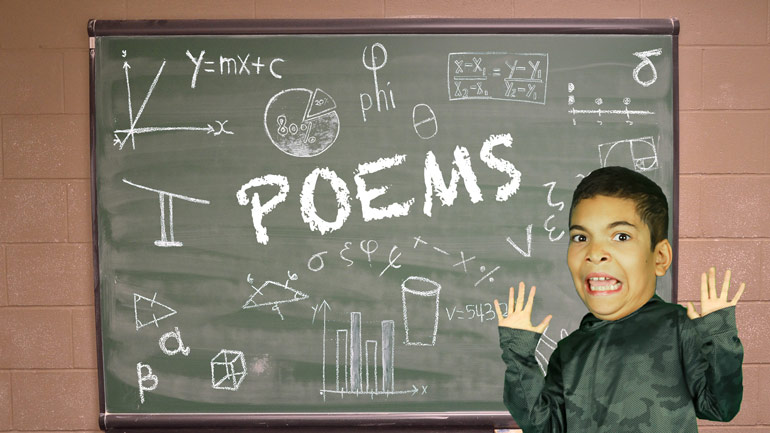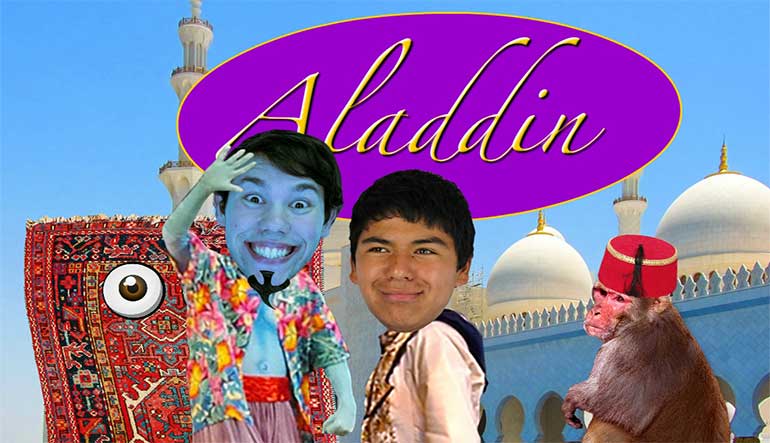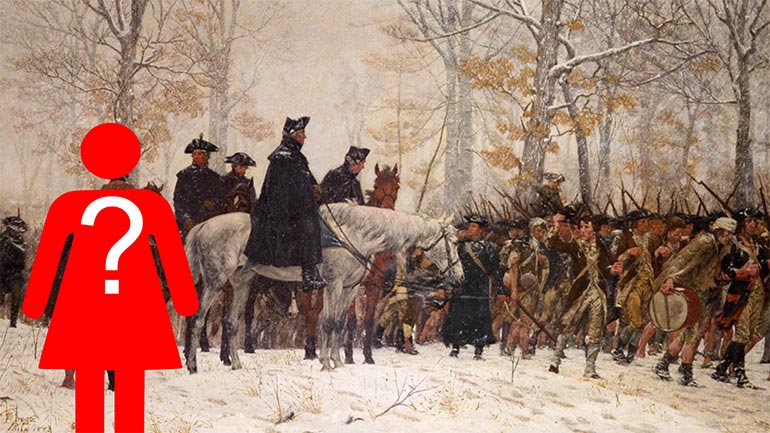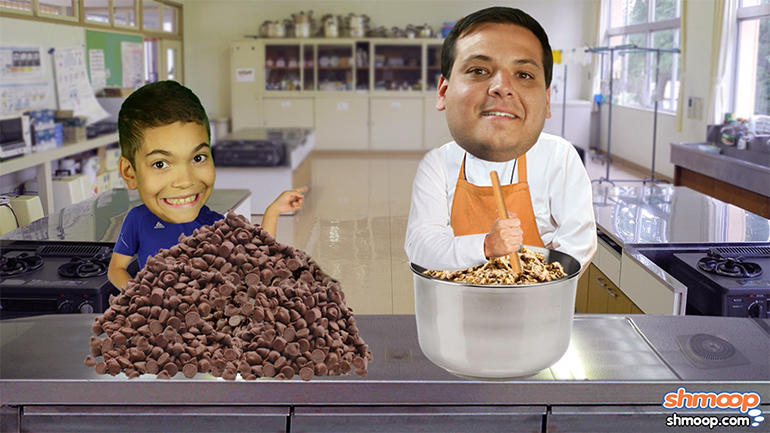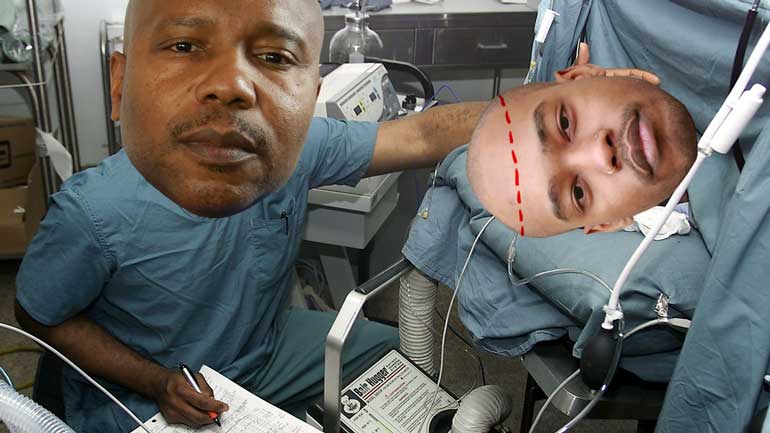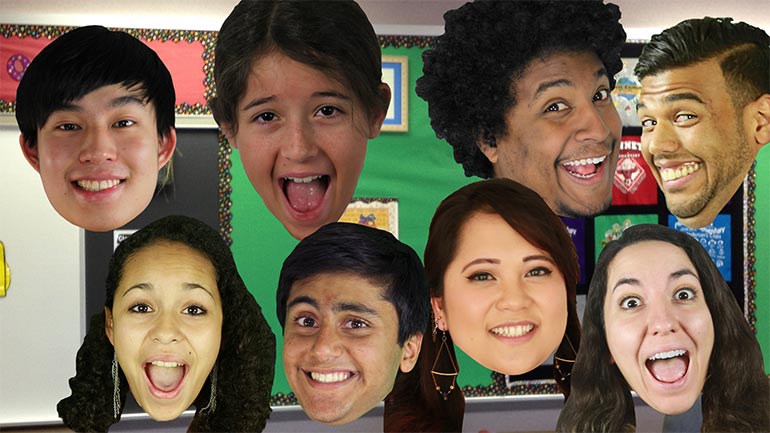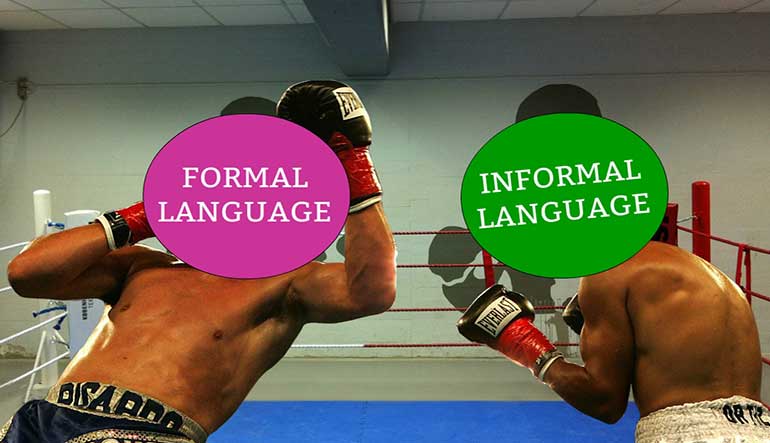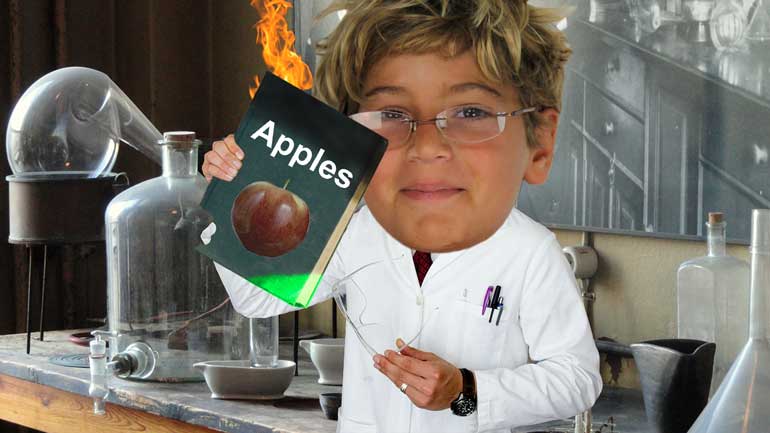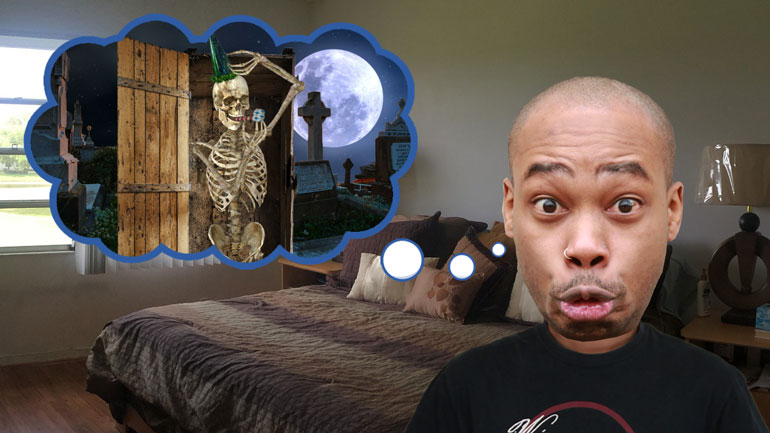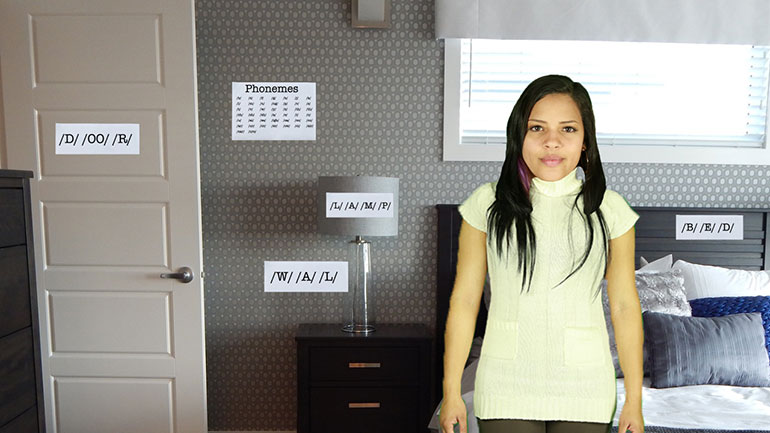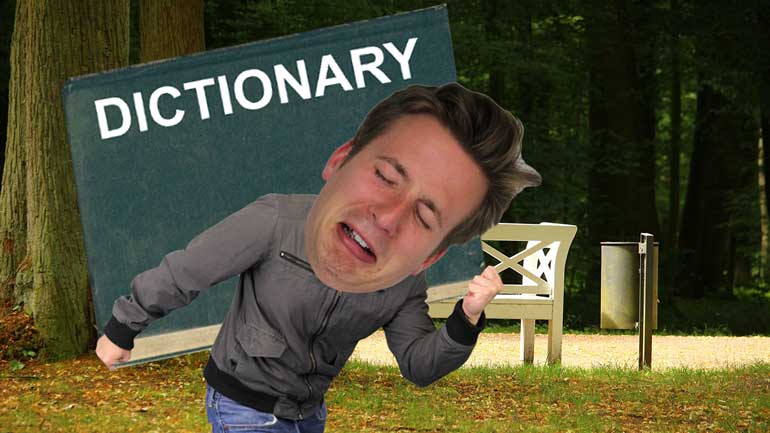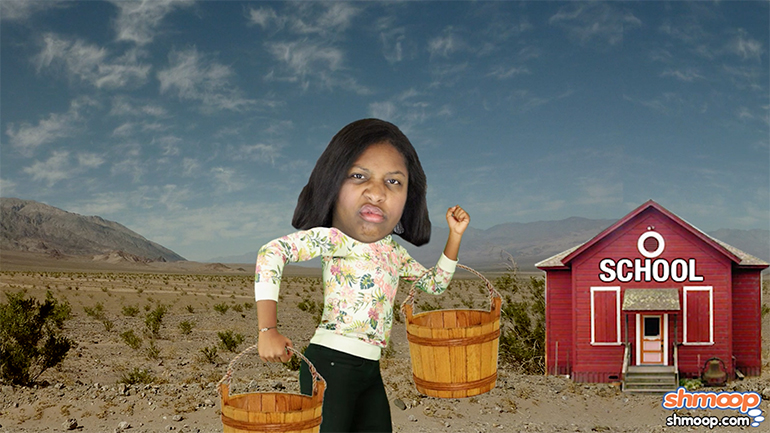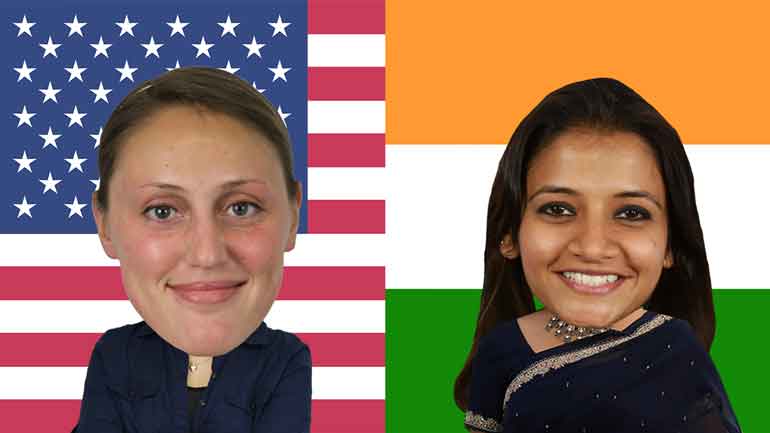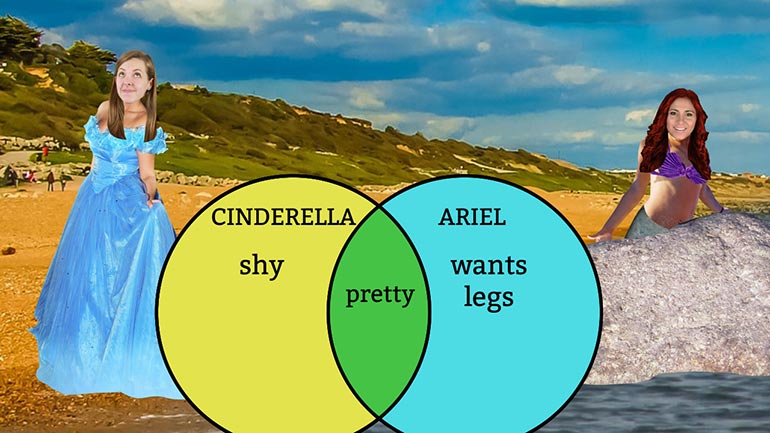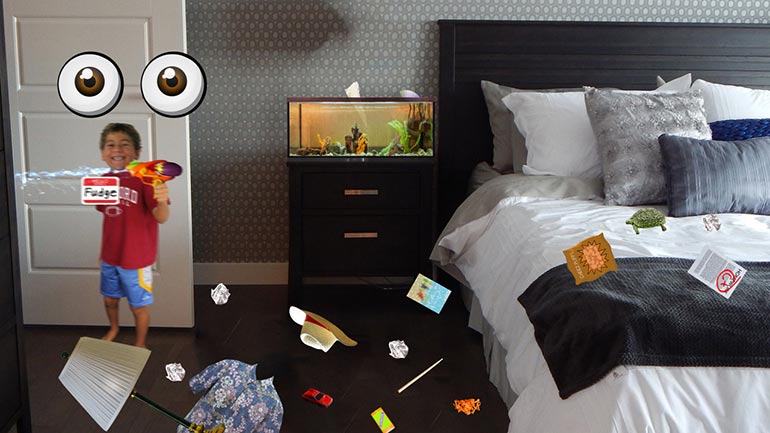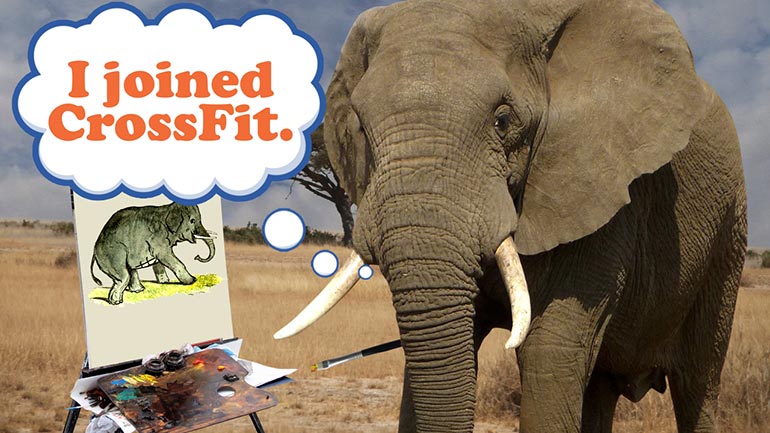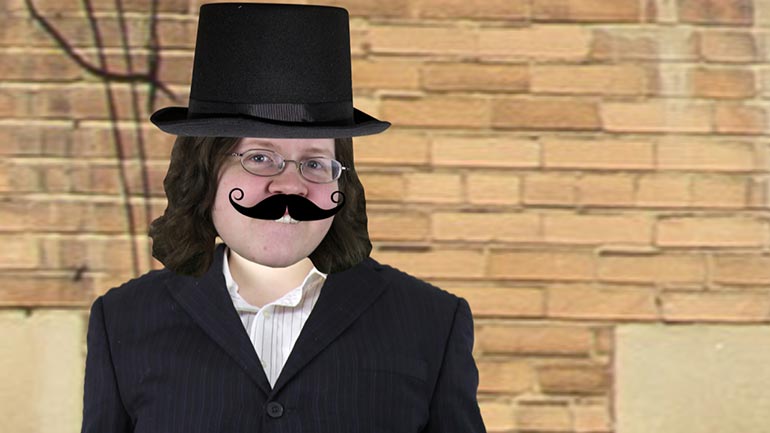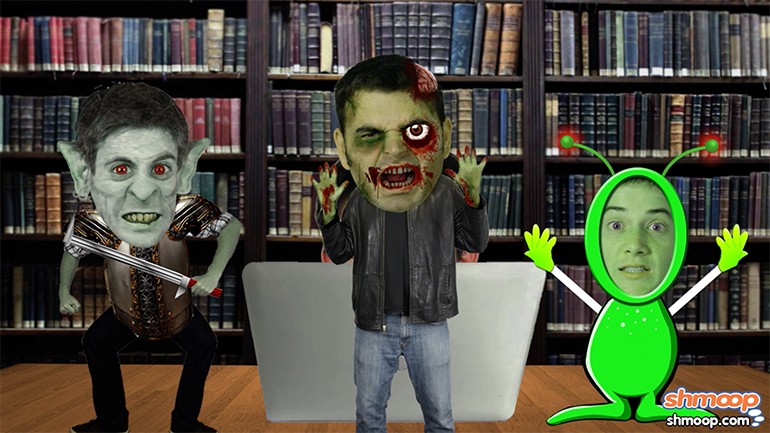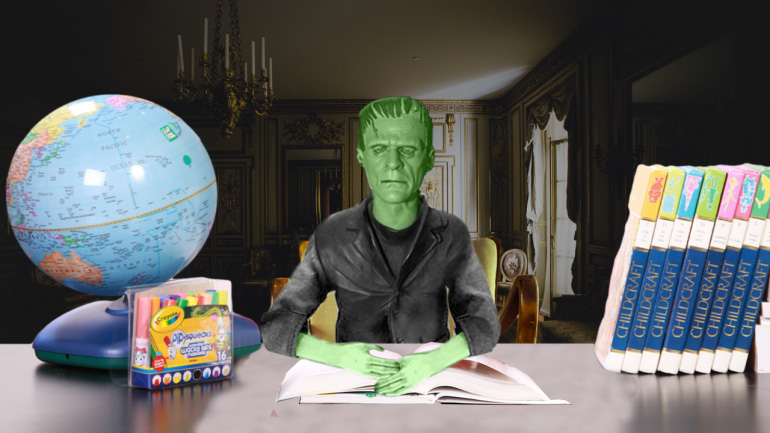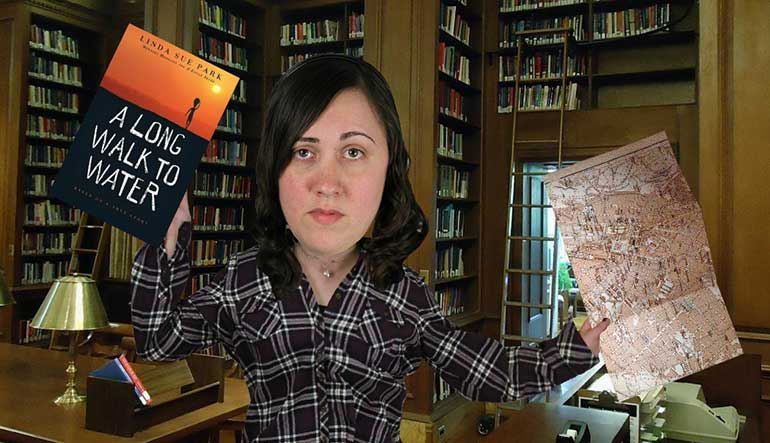ShmoopTube
Where Monty Python meets your 10th grade teacher.
Search Thousands of Shmoop Videos
Language Arts Videos 92 videos
In this lesson we'll subject you to some verbs and predicates. Each one is a necessary part of a complete breakfas—er...sentence.
Choosing words carefully is important. You may end up vexing the assemblage of citizens you're conversing with...or you might even just plain bore...
ELA 4: Abstract Nouns and Abstract Poems 25 Views
Share It!
Description:
Most of the stuff you interact with in your day-to-day life are good ol' fashioned nouns. They’re things that you can touch, smell, taste, and hold. So yeah...with regard to your pet "Slowpoke," "turtle" is indeed a noun. Now please leave the poor thing alone.
Transcript
- 00:04
[Dino and Coop singing]
- 00:13
Look to your left.
- 00:15
Look to your right. [Man looking around]
- 00:16
Look up.
- 00:17
Look down.
Full Transcript
- 00:18
Look in the mirror.
- 00:20
Hi, there. [Man smiles in the mirror]
- 00:21
Now close your eyes.
- 00:22
Think of the last thing you ate.
- 00:24
The last thing you held. [Man holding a teddy bear]
- 00:25
The last thing you smelled. [Man with smelly arm pits]
- 00:27
All that stuff has one thing in common.
- 00:29
Any guesses?
- 00:31
All right, we’ll tell you.
- 00:33
They're all nouns.
- 00:34
Crazy, huh?
- 00:35
Most of the stuff you interact with in your day-to-day life are good ol' fashioned nouns. [Items appear]
- 00:38
They’re things that you can touch, smell, taste, and hold.
- 00:41
But what about the nouns that you can't pick up with your bare hands? [A hand picks up a football]
- 00:43
And, no, we’re not talking about elephants or cars or other really heavy nouns. [An elephant walking across a field]
- 00:47
We mean abstract nouns. [Man carrying an arm chair]
- 00:49
The phrase “abstract nouns” might make you think of some weird shapes and colors, but [Girl painting]
- 00:53
that’s not exactly right. [The painting is a mess of colours]
- 00:55
Abstract nouns are nouns that refer to ideas, qualities, or concepts. [Coop pointing at a blackboard]
- 00:59
Any noun that isn't a physical thing in the world, any noun that you can’t interact [Dino pointing at a blackboard]
- 01:03
with – well bingo!
- 01:04
That’s an abstract noun.
- 01:05
So let's play a game shall we…
- 01:08
All right, here we go.
- 01:09
We've got two buckets. [Two buckets appear]
- 01:11
One is for common nouns and one is for abstract nouns. [Labels are stuck on the buckets]
- 01:14
We'll name a few nouns and you try to put them in the right bucket.
- 01:18
Horse?
- 01:19
Yep, you can definitely touch a horse.
- 01:20
You can even ride a horse. [A horse appears]
- 01:22
Into the common bucket. [Post-it with horse on is thrown into the common bucket]
- 01:23
Taco?
- 01:24
Yep, if you can eat it, it's probably a common noun.
- 01:27
Maturity.
- 01:28
Ooh, that’s a tricky one.
- 01:31
Maturity is definitely a noun, but good luck trying to touch or eat “maturity.” [Maturity in the dictionary]
- 01:34
It's a human characteristic, not an object.
- 01:37
Abstract it goes. [Post-it with maturity is thrown into the abstract bucket]
- 01:38
Luck.
- 01:39
Yep, you got it.
- 01:41
Abstract.
- 01:42
Pants?
- 01:43
All right, now we're just making it easy for you.
- 01:44
Okay, last one: love.
- 01:47
Into the abstract bucket it goes.
- 01:48
Don't you just love this game? [Love hearts appear from the abstract bucket]
- 01:50
So now that we've nailed down the difference between common and abstract nouns, now we can
- 01:54
move on to abstract poems.
- 01:55
"What are abstract poems??" you probably didn't just ask.
- 01:59
We're going to tell you anyway. [Student looks bored]
- 02:00
Simply put, abstract poems are 6-8 line poems that start with your choice of an abstract [Coop pointing at a blackboard]
- 02:05
noun as the heading.
- 02:07
Each line after that links your abstract noun to one of the five senses.
- 02:11
It's best to choose an abstract noun that you feel connected with so you have lots to [Dino pointing at a blackboard]
- 02:15
write about.
- 02:16
Actually, that’s a good tip for poems in general.
- 02:18
So let's give it a shot!
- 02:19
How about we write an abstract poem for “Tales of a Fourth Grade Nothing?” [A folder of the poem appears]
- 02:23
We're going to write from Peter's perspective in Chapter 2, when he's getting really annoyed
- 02:27
with his little brother, Fudge.
- 02:28
So if we were Peter at that time, what abstract noun might we be feeling connected to?
- 02:32
Well, Peter is probably thinking that his little brother, Fudge, is mighty evil right now. [Peter stood with his little brother in front of a fish tank]
- 02:36
So let's go with evil.
- 02:38
Muahahahaha." [Fudge doing an evil laugh]
- 02:40
First step - let's write “evil” at the top of the poem.
- 02:42
Next, we need to link the word “evil” to different human senses. [Pictures of eyes, ears, hands etc appear]
- 02:46
Evil sounds like...
- 02:47
Fudge banging loudly on Mom's pots and pans. [Fudge drumming on pans]
- 02:50
Evil looks like...
- 02:51
Fudge making a big mess in Peter's bedroom. [A bedroom left in a mess]
- 02:53
Evil smells like...
- 02:55
Fudge's gross baby burps. [Fudge burping]
- 02:57
Evil feels like...
- 02:58
Fudge's sticky hands getting gunk all over Peter's stuff. [Dirty marks all over Peter's stuff]
- 03:02
And - voila! – our very own abstract poem written about Fudge.
- 03:05
Pretty fun, huh?
- 03:07
Now it's your turn.
- 03:08
Choose any abstract noun you – or your favorite character - feels connected with.
- 03:12
The possibilities are endless. [Teacher smiling next to a blackboard]
- 03:14
Hm…anyone else feel like fudge right about now…? [Boy burps and looks sick because he's eaten too much fudge]
Related Videos
Sticks and stones, right? Well...only sometimes. It's a good idea to make sure your words aren't going to hurt others. Let's look at some ways to d...
Learn to debate like a champ. It's way better than debating like a chimp. That just takes mudslinging to a whole new level.
Today we'll learn about biographies and autobiographies. And no, the second one has nothing to do with the lives of cars.
In this lesson we'll subject you to some verbs and predicates. Each one is a necessary part of a complete breakfas—er...sentence.
Choosing words carefully is important. You may end up vexing the assemblage of citizens you're conversing with...or you might even just plain bore...

